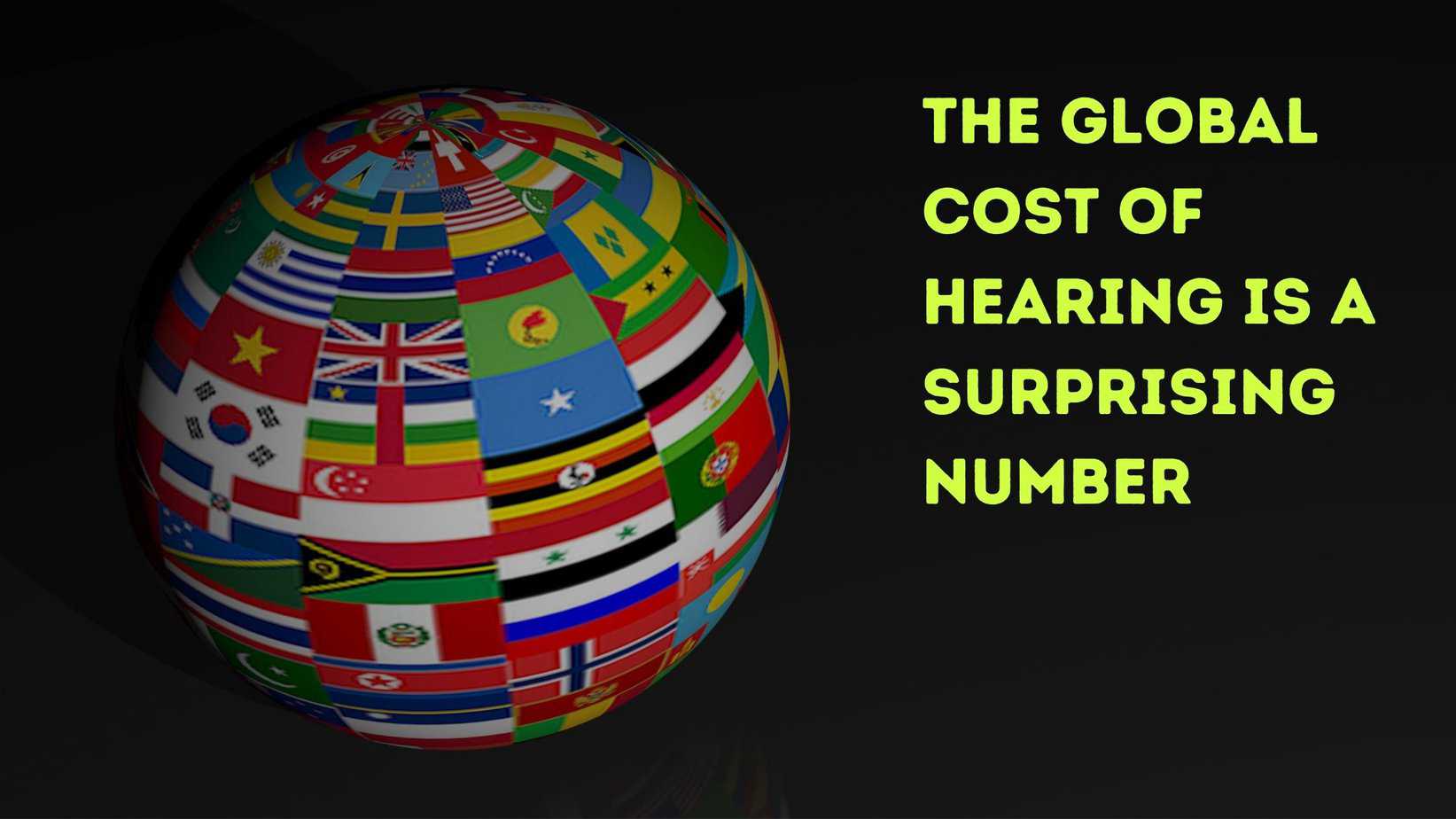Most of us are aware that there are immense personal costs associated with hearing loss, especially when it goes untreated. With roughly 48 million Americans dealing with some form of hearing loss today, many people have health issues that are the consequence of untreated hearing loss, while others lose productivity at work. Many people inadvertently sacrifice personal relationships, or feel fatigued whenever they spend time outside the house. The problems that individuals with untreated hearing loss face are well documented, but a new study has found that the global cost of hearing loss may be greater than ever imagined.
Study Details
The study, called “Estimating the Global Costs of Hearing Loss,” was conducted at the London School of Economics and published in the International Journal of Audiology. The study construed the consequent costs of hearing loss, including health care costs, lost productivity, educational support, and the societal costs of lost quality of life.
Data for the study came from the 2019 Global Burden of Disease, a study that used data contributed by 7,000 researchers across 156 countries. This study aimed to determine the prevalence of diseases of all kinds across all cultures, and to find the degree of harm caused by disease.
According to the LSE study, the estimated global cost of hearing loss is $981 billion international. That’s almost $1 trillion. Only 43% of these costs are incurred in high-income areas of the world. About 23% accounts for the loss in East Asia alone.
While children make up only 4.4% of the people with hearing loss, they account for 6.5% of the cost. Additionally, the study finds, only 17% of people with hearing loss are treated for it with hearing aids or cochlear implants. That means 83% of hearing loss in the world is going unaddressed, which is staggering considering the economic impact we now know it has.
And about that estimate: the study authors say that the incredibly substantial $981 billion estimate of costs is on the conservative side of what the real amount may be.
Breakdown of Contributing Factors
The breakdown of the estimate includes a number of considerations, each of which makes up a certain percentage of the final tally.
- 32% ($314 billion) – Non-hearing health care costs. These are medical expenses that are not related to treating hearing loss, but are the result of complications that hearing loss likely caused.
- 47% ($461 billion) – Lost quality of life. This is determined based on the number of years that a person lived with disability by 2019. The authors note that the effects of hearing loss on quality of life can be profound, including communication problems, relationship problems, educational underperformance, poor general health, and problems finding employment or advancing a career. The stigma associated with hearing loss (which varies from place to place) can also pose issues for mental health.
- 19% ($186 billion) – Productivity losses. This accounts for those with moderate-to-severe hearing loss in areas with full or near-full employment in 2019. Presumably, treating hearing loss would allow these people to participate in the workforce, thus generating more wealth.
- 2–3% (~$20 billion) – Additional costs related to education.
The authors also note that hearing loss tends to be on the rise worldwide, suggesting that a greater percentage of the population will have hearing loss in the future. Accordingly, the cost to society is also expected to increase proportionally. They also point out that as little as a 5% reduction in the prevalence of hearing loss would reduce the cost by $49 billion.
Prevalence of Hearing Loss has Declined in America
In America, the incidence of hearing loss has come down significantly since the 1950s for those in their 60s. This is likely due to greater protections against noise in the workplace, a general reduction in the prevalence of manufacturing jobs, and a better understanding of the harm that excess noise can cause. However, Americans are also living longer than ever, and most can still expect to encounter issues with hearing loss in their 70s.
Hearing Wellness Solutions
If you or a loved one has been experiencing the effects of hearing loss, make an appointment for a hearing test today at Hearing Wellness Solutions. Hearing aids are still the best treatment for hearing loss, and they are better than ever before. Find out what hearing aids can do to improve your life, and your health! Contact us today.

